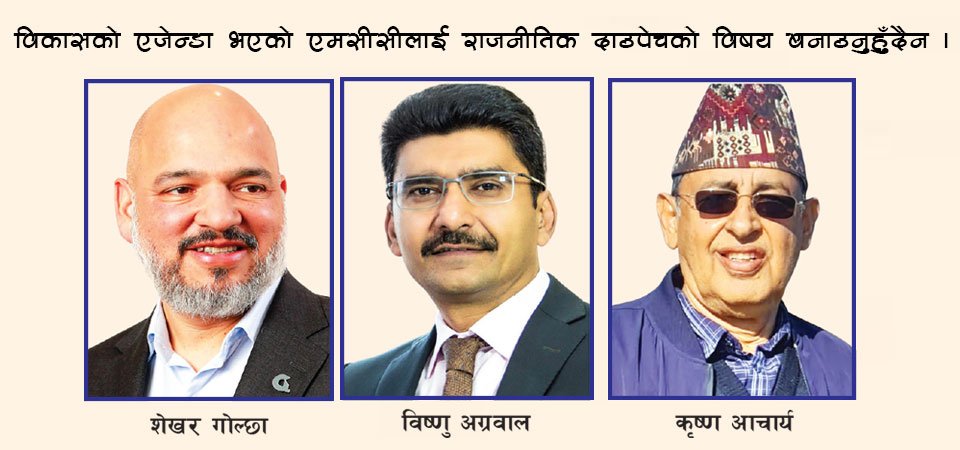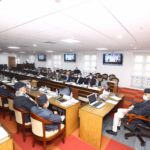Kathmandu, February 7
The initial framework for spending US grant aid on two Millennium Challenge Corporation
(MCC) projects is clear. According to the plan, road from Butwal of Rupandehi to Lamahi of
Dang should be constructed and inter-country power transmission line from Ratomate,
Lapsiphedi, Damauli, Butwal to Sunauli should be constructed.
However, five years after the MCC agreement was signed, private sector leaders have urged the government and political parties to reach a speedy decision on the issue. He also clarified that MCC is needed to pave the way for investment.
Shekhar Golchha, president of the Federation of Nepalese Chambers of Commerce and Industry (FNCCI), Bishnu Agrawal, president of the Confederation of Nepalese Industries (CNI) and Krishna Acharya, president of the Independent Power Producers’ Association of Nepal (IPPAN) urged that MCC was an agenda for development and not a matter of political maneuvering.
Development agenda
Golchha, president of the Federation of Nepalese Chambers of Commerce and Industry (FNCCI), said that he took MCC as a development and welcomed donors who spend on weak infrastructure development. He argued that if MCC was withdrawn, Nepal would be at a loss, the wrong message would be sent to the world stage and Nepal would be at a loss if the assistance for infrastructure construction was withdrawn. He mentioned that the MCC grant would be spent directly on construction and not on social and unproductive sectors like other grants.
President of the Confederation of Nepalese Industries, Bishnu Agrawal, said that the assistance was directly linked to the development of the MCC. Stating that this grant would be an exemplary project for Nepal as the project has to be completed within five years, he said, ”There is a problem that Nepal’s projects are not completed on time but MCC project must be completed within the stipulated time.”
Acharya, Chairman of IPPAN, said that all grants for the development of Nepal should be
welcomed, adding that there has never been any dispute over the assistance coming from
USAID but it was a matter of surprise to have a dispute in MCC.
Urge not to politicize
Noting that the private sector has already clarified its position on MCC and has not politicized it, Chairman Golchha said, ”Politically, it is not our concern.” Mentioning that the development expenditure has traditionally been borne by the grant, he said that the process of choosing the grant would be affected in the process of infrastructure development.
Chairman of CNI Agrawal said that MCC should be passed by the parliament without making it a political issue and development work should be taken forward. Stating that the MCC should be passed as Nepal has already signed the agreement, he said that the government’s capacity could be questioned if the agreement is not implemented. Acharya said that it was the responsibility of the government and political parties to streamline the process of MCC implementation and urged not to politicize such issues.
Hope to sell electricity
Stating that the construction of power transmission line would help in the economic
development of Nepal, Chairman Acharya said that electricity could be sold by constructing
inter-country transmission line with the grant from MCC. Stating that the country should reap economic benefits by selling the increased production after the construction of infrastructure when the construction of inter-country transmission line from Butwal to Gorakhpur is necessary, he said that the desire of energy producers is to build inter-country transmission line as soon as possible.
Chairman of CNI Agrawal said that the transmission line to be constructed with MCC grant
would also help in exporting the electricity saved in Nepal to India. He said, “This grant is for construction of electricity or roads. Road levels have also dropped. Work can also be done to improve it.” (Sourced from NTV)
By Karuna Thapa




